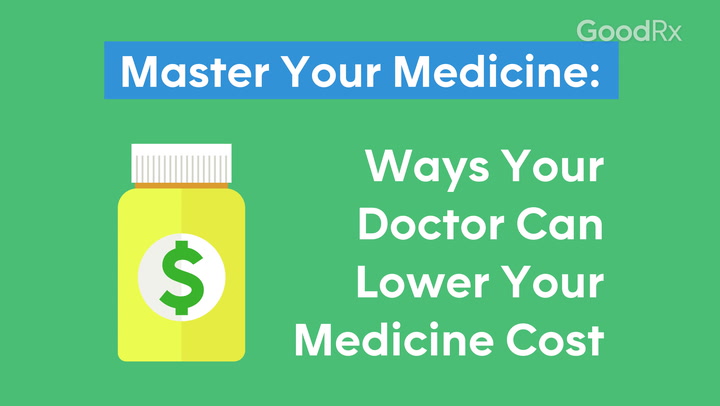GoodRx Guide
GoodRx for Healthcare Providers
Information HCPs can trust
We know your time as a healthcare provider (HCP) is valuable. That’s why we’ve gathered current and well-researched information across a variety of topics. Here, you’ll find resources that can benefit your career and practice of medicine, including recent news, thought-provoking articles, and personal tips.
The stories listed here are written by HCPs, for HCPs. Our team consists of physicians, pharmacists, nurses, and healthcare attorneys. We’re here to support you as you continue to deliver critical front-line care.
Access, affordability, and adherence
Access to quality healthcare in the U.S. remains a challenge. Currently, about 1 in 10 people do not have health insurance coverage. Without insurance, many people cannot afford healthcare services.
At the same time, our healthcare spending per person is higher than in any other country. Even patients who have insurance face high out-of-pocket costs and unaffordable deductibles. Preventative services, screenings, and medications are often avoided because of their cost. Or the distance that patients must travel to see an HCP and receive care is too great.
The cost of prescription medications is exceptionally high — a $400 billion-dollar industry. Many consumers must choose between buying the medication they need or spending their hard-earned dollars on basic necessities.
Despite the high cost of care, the U.S. ranks below 30 other countries in:
Infant survival
Maternal mortality
Overall life expectancy
Preventable deaths
Celebrating HCPs
Recognizing HCPs who are doing exciting work or overcoming significant obstacles can provide a much-needed source of inspiration. Our stories often highlight the practice of medicine from a different perspective: from the psychiatrist who now coaches other physicians to a preventive medicine doctor working in tech.
HCPs are innovators, entrepreneurs, and advocates. Here, we take some time to acknowledge the incredible work that HCPs do every day.
Diversity, equity, and inclusion in healthcare
Healthcare disparity impacts HCPs and patients.
Discrimination and bias occur for many reasons, and there is a lack of diversity in the HCP community. Marginalized groups encounter difficulty as they seek to become HCPs. And gender and race factors directly affect many HCPs during their careers.
Increasing inclusion and acceptance is a critical first step toward a better healthcare system. When patients don’t see themselves reflected in their HCP, they often don’t share critical information. And implicit bias towards certain groups leads to poor healthcare outcomes. Patients commonly report discrimination related to:
Age
Drug use or prior substance use
Educational level
Mental health status
Race or ethnicity
Sex
Socioeconomic status
Weight
By examining biases and studying efforts to increase diversity, equity, and inclusion in their practices, HCPs can provide care that welcomes all and promotes optimal health.
Resilience and well-being
HCPs are not immune to mental health issues. The medical profession has high rates of burnout and suicide. The strain of the COVID-19 pandemic has only accentuated many of the problems HCPs already experience. Unfortunately, HCPs often don’t admit when they are feeling overwhelmed.
HCPs can learn techniques to care for themselves and recognize colleagues that need help. Sometimes this involves getting assistance from another professional. But simple measures, like incorporating the practice of gratitude, can also be very effective in boosting mental health.
Building resilience and integrating strategies to promote your well-being allow you to function more effectively and be more present with your family, patients, and community.
Legal topics in healthcare
Laws and public policy are critical to health practices; however, many HCPs receive little legal training during their education. Regulations and policies are frequently updated, making staying current a challenge.
Our articles, written and reviewed by experienced healthcare attorneys, provide basic education on legal subjects in medicine and delve into timely topics. You can expect a high-level overview of the issues that are most relevant to HCP practice, ensuring you stay on top of new developments.
Leadership and career development
Effective leadership is critical in today’s healthcare landscape and an essential component for achieving successful outcomes and patient satisfaction. HCPs who learn how to lead and function as part of an interdisciplinary team can do amazing things.
Career development strategies provide more than just a pathway to a lucrative career, though. Setting and achieving goals can reduce the impact of burnout by increasing personal and job satisfaction. Building your leadership style and advancing your career can inspire you to avoid stagnant work.
Common questions
Unsurprisingly, today’s healthcare issues largely center on the COVID-19 pandemic and the disparities that have increased as a result. The pandemic has highlighted many gaps in the current system, along with the strain on our healthcare workers. Issues going forward include:
Cost of care: understanding transparency in costs and the high price of pharmaceuticals for many patients
Healthcare equity: how factors such as race, sex, and socioeconomic status help or hinder access to quality care
Managing resources: how supply chain problems, recruitment and retention, and the “Great Resignation” have affected healthcare and the private sector
Mental health crises: how increases in anxiety and depression impact the healthcare workforce and the general public
Telemedicine: how should it be delivered and reimbursed, and is it here to stay?
Health equity refers to the ability of every individual to reach their full health potential without suffering disadvantages. Obstacles to health equity are linked to economic, social, and environmental factors. Becoming more aware of social determinants of health and their impact can help HCPs foster better health equity.
Qualified healthcare professionals (QHP) hold a level of education, training, or certification to perform professional services within their scope of practice and independently bill for that service. This differs from clinical staff, who must work under the supervision of a QHP.
QHPs include the following:
Clinical social worker
Certified nurse specialist
Certified nurse midwife
Certified registered nurse anesthetist
Nurse practitioner
Physician assistant
Physical therapist
References
Braveman, P. (2014). What are health disparities and health equity? We need to be clear. Public Health Reports.
Centers for Disease Control and Prevention. (2019). Legislation, regulations & policies.
Centers for Disease Control and Prevention. (2020). Health equity.
Centers for Medicare & Medicaid Services. (2021). Hospital price transparency.
Galvani, A., et al. (2020). Improving the prognosis of healthcare in the United States. Lancet.
Greco, L., et al. (2020). Goal-setting in the career management process: An identity theory perspective. Journal of Applied Psychology.
Indiana State Medical Association. (n.d.). What is a qualified health professional (QHP), clinical staff member?.
Kooli, C. (2021). COVID-19: Public health issues and ethical dilemmas. Ethics Medicine Public Health.
Medline Plus. (2020). Types of health care providers.
PwC Health Research Institute. (2020). Top health industry issues of 2021: Will a shocked system emerge stronger?.
Rand Corporation. (2021). Prescription drug prices in the United States are 2.56 times those in other countries.
Ransom, M., et al. (2019). Building the legal capacity of the public health workforce: Introducing the public health law academy. The Journal of Law, Medicine & Ethics.
Sfantou, D., et al. (2017). Importance of leadership style towards quality of care measures in healthcare settings: A systematic review. Healthcare.
Togioka, B., et al. (2021). Diversity and discrimination in healthcare. StatPearls.
Torpy, J., et al. (2012). Health care professionals and qualifications. Journal of the American Medical Association.
U.S. Department of Health and Human Services. (n.d.). Health care access and quality.
U.S. Department of Health and Human Services. (2021). Laws & regulations.
Van Diggele, C., et. al. (2020). Leadership in healthcare education. BMC Medical Education.
Whitehead, J. (2016). Outness, stigma, and primary healthcare utilization among rural LGBT populations. PLoS One.
World Health Organization. (2013). Annex 1 definition and list of health professionals.
Zimmerman, E., et al. (2021). Top ten issues in health law 2021. American Health Law Association.





























